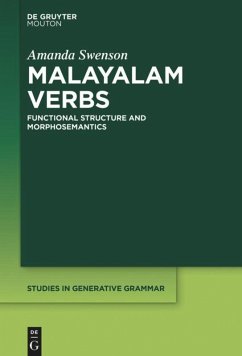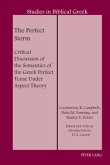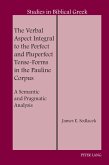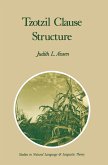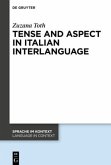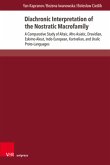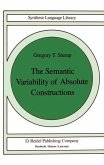This book, using Malayalam as a case study, provides an in-depth exploration of how inflectional suffixes should be separated from the verb and the implications this has for the syntax and semantics. Past work has proposed that Malayalam lacks a Tense Phrase and tense morphology, i.e. is 'tenseless'. However, this book shows that Malayalam behaves differently from other tenseless languages and that it does have tense morphology. It also provides evidence that there is a Tense Phrase in the syntax. In addition, it examines what have been called the two 'imperfectives' and argues that one is a type of progressive, while the other is a pluractional marker and shows that Malayalam lacks perfect morphology and a Perfect Phrase in, minimally, Universal perfects. With respect to finiteness, among other things, it argues that Conjunctive Participles are best analyzed as a type of absolutive adjunct and that -athu 'gerunds' involve nominalization above the Tense Phrase-level. This book will be a valuable resource for anyone interested in cross-linguistic variation in Tense-Aspect-Modality and/or the morphosyntax or morphosemantics of Dravidian languages.
"MV is the first major study of the Malayam verbal system since McAlpin (1973) and, as such, fills in a gap in the literature on Dravidian verbal systems to advance our understanding of what factors are involved in the analysis of the Malayam verb." Sanford B. Steever in: LINGUIST List 31.1836, Jun 03 2020, https://linguistlist.org/issues/30/30-4139.html

